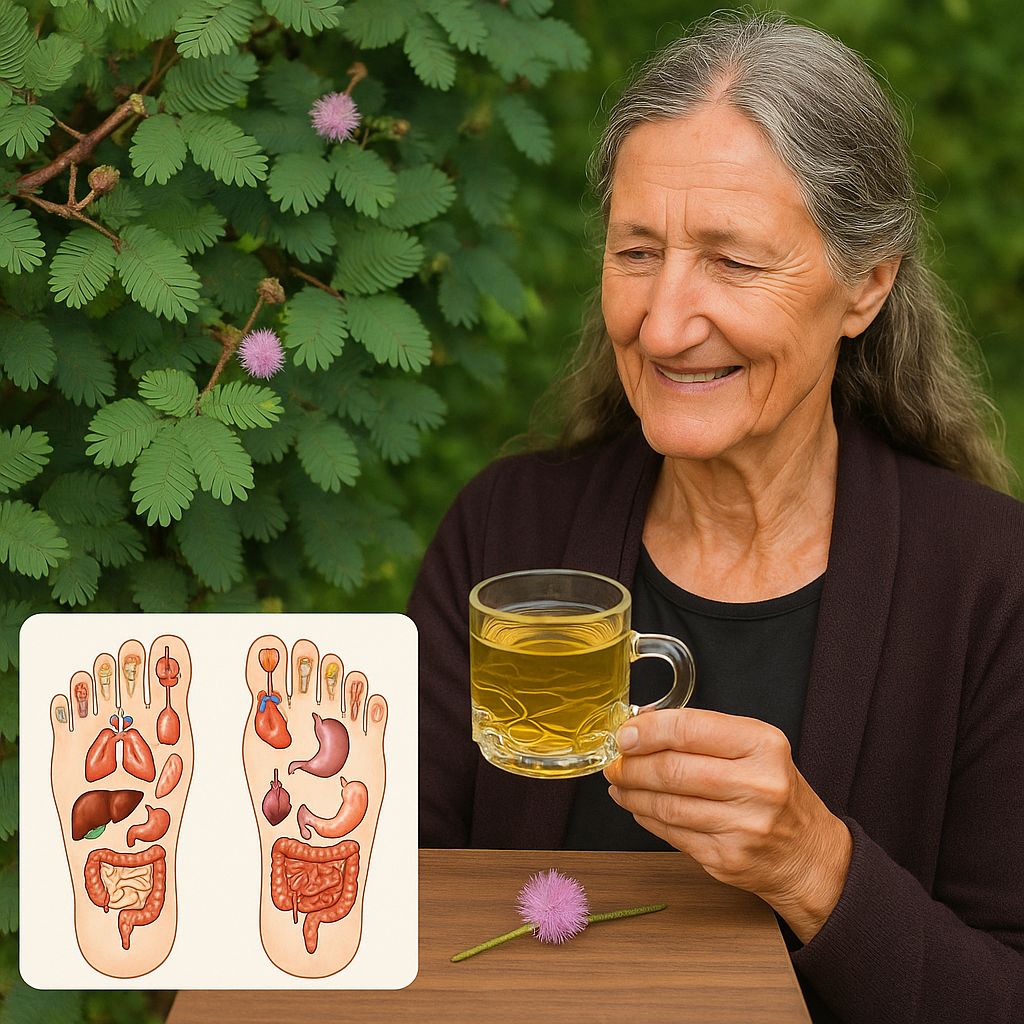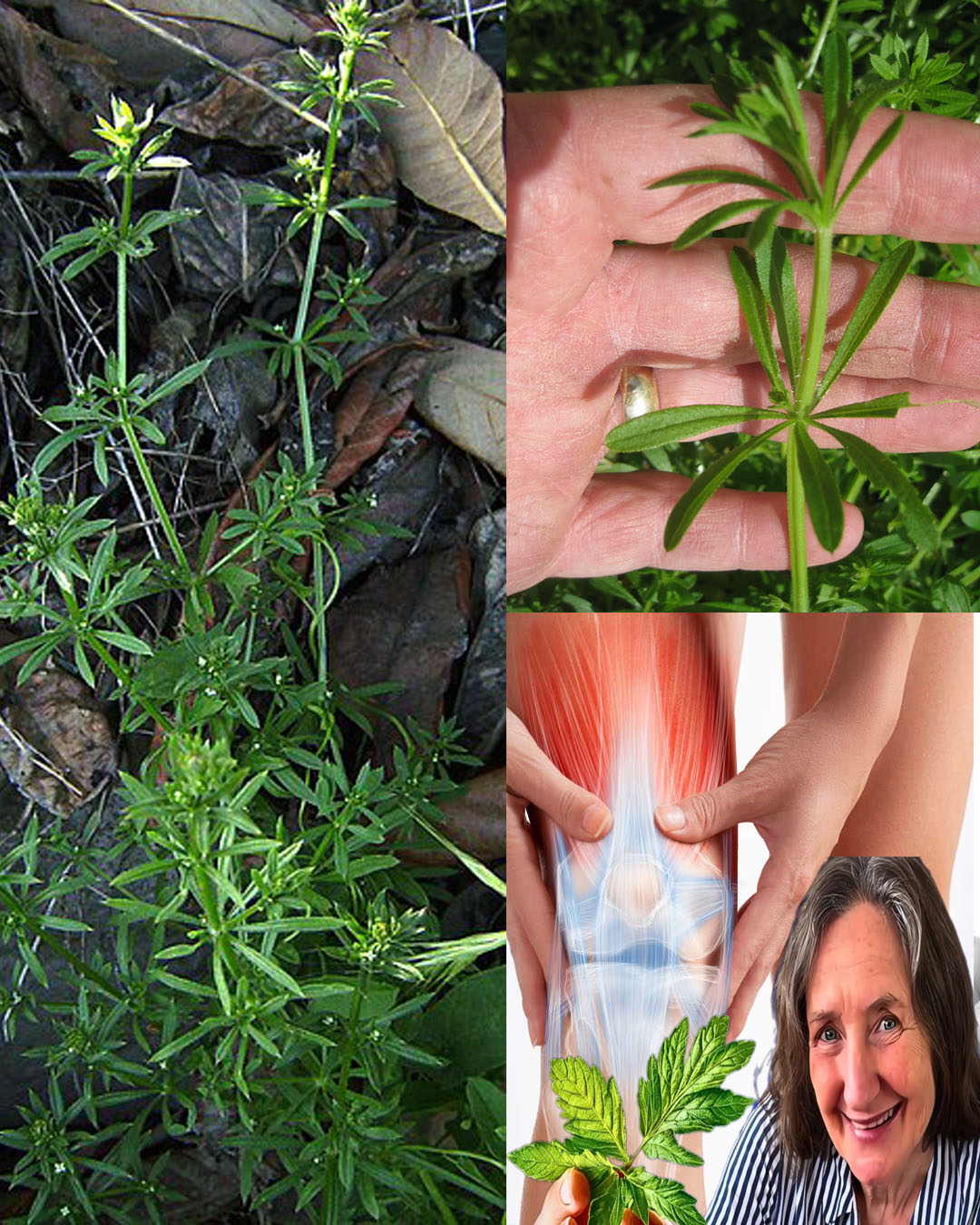Mimosa pudica, often nicknamed the “shy plant” or “touch-me-not,” is famous for its ability to fold its leaves when touched — a captivating trait that delights children and nature lovers alike. But behind its gentle movements lies a bold medicinal legacy. For centuries, traditional healers across South America, Asia, and Africa have harnessed the health-enhancing properties of this remarkable plant.
If you’re searching for a natural way to support digestion, calm inflammation, improve sleep, or even speed up wound recovery, Mimosa pudica might be your next wellness staple.
Let’s explore its top 10 benefits and the easiest ways to incorporate this ancient remedy into your routine.

🌿 1. Powerful Anti-Inflammatory Agent
Mimosa pudica contains bioactive compounds that help reduce inflammation in joints, muscles, and tissues. It’s especially useful for those managing arthritis, muscle pain, or chronic swelling.
💡 Use tip: Drink herbal tea or apply a poultice to inflamed areas for local relief.
🧠 2. Natural Nervous System Relaxant
Feeling stressed or restless? Mimosa pudica has mild sedative properties that help calm anxiety, ease tension, and promote restful sleep.
💡 Use tip: A cup of Mimosa pudica tea before bed helps you wind down naturally.
🧽 3. Supports Liver Detoxification
This plant is known for its hepatoprotective effects, helping protect the liver and eliminate toxins.
💡 Use tip: Use capsules or tea to support regular liver cleansing protocols.
🦠 4. Antimicrobial and Antiviral Powerhouse
Mimosa pudica shows strong antimicrobial activity, helping the body fight off bacterial, fungal, and viral infections.
💡 Use tip: Gargle cooled tea for throat infections or use a poultice on skin irritations.
🌿 5. Heals Wounds and Soothes Skin
Thanks to its antibacterial and anti-inflammatory properties, Mimosa pudica promotes fast healing of cuts, sores, and rashes.
💡 Use tip: Crush fresh leaves and apply as a poultice to affected skin.
🦷 6. Promotes Oral Health
Using Mimosa pudica as a natural mouth rinse may help reduce gum inflammation and bacterial buildup in the mouth and throat.
💡 Use tip: Prepare a decoction for gargling during sore throat or gum flare-ups.
🌸 7. Menstrual Cramp Relief
Women have traditionally used Mimosa pudica to ease menstrual pain, irritability, and regulate monthly cycles.
💡 Use tip: Sip warm tea during your cycle or use it as a relaxing bath soak.
🚽 8. Gentle Digestive Aid
Whether you’re dealing with constipation, bloating, or diarrhea, this plant’s mild laxative and soothing effects can restore balance to the digestive system.
💡 Use tip: Brew and drink after heavy meals or when experiencing stomach discomfort.
🪑 9. Support for Hemorrhoids
The plant’s cooling and anti-inflammatory nature makes it an effective internal and topical remedy for hemorrhoid relief.
💡 Use tip: Apply a poultice externally or drink tea to ease inflammation.
🛡️ 10. Rich in Antioxidants
Mimosa pudica contains potent antioxidants that protect the body from free radical damage — supporting cellular health and slowing down aging.
💡 Use tip: Include capsules or powdered leaves in your wellness routine for daily protection.
🌿 How to Use Mimosa Pudica at Home
🍵 1. Herbal Tea for Stress, Sleep, and Digestion
Boil 1 teaspoon of dried leaves in 1 cup of water for 10 minutes. Strain, cool, and sip slowly. Best consumed before bed or after meals.
🧴 2. Topical Poultice for Wounds and Irritations
Crush fresh leaves into a paste. Apply to wounds, bites, or inflamed skin. Leave for 1–2 hours before rinsing. Repeat as needed.
🫧 3. Gargle for Mouth & Throat Health
Boil a handful of leaves in 2 cups of water. Let cool. Use as a gargle or rinse to soothe sore throats, swollen gums, and mouth ulcers.
🛁 4. Bath Soak for Relaxation and Skin Healing
Add 1 handful of dried leaves or 5 drops of Mimosa pudica extract to warm bathwater. Soak for 20–30 minutes to relieve muscle tension and soothe the skin.
💊 5. Capsules or Powder (Internal Use)
Available in most health food stores or online. Follow packaging instructions or start with small doses. Ideal for gut support, parasite detox, and immune balance.

⚠️ Safety and Precautions
– Avoid Mimosa pudica if you are pregnant, breastfeeding, or managing hormone-sensitive conditions.
– If you are on medication for sleep, liver, or blood pressure, consult your healthcare provider before use.
– Start with small doses to observe your body’s reaction.
– Not intended for long-term use without guidance from a professional.
🌿 Final Thoughts: More Than Just a Touch-Sensitive Plant
Mimosa pudica is one of nature’s quiet healers — subtle, responsive, and deeply therapeutic. Whether you’re looking to improve digestion, relieve inflammation, support your liver, or reduce stress, this humble plant has a role to play.
With multiple ways to use it — teas, poultices, gargles, baths, and supplements — you can experience its many benefits easily and naturally. Just remember to use it mindfully and let your body guide your journey with this remarkable herb.
👉 Curious about more hidden healing plants like Dandelion, Broadleaf Plantain, or Mullein? Stay tuned for our next wellness spotlight.


